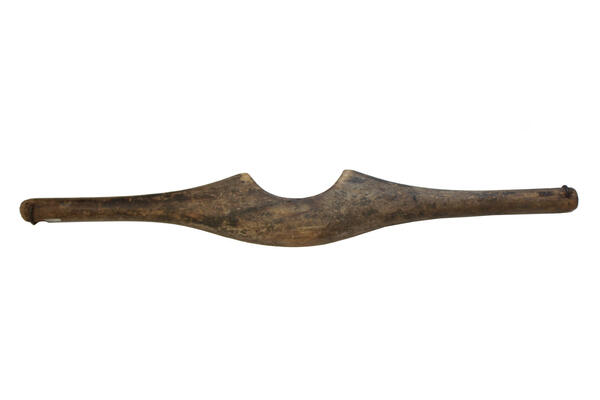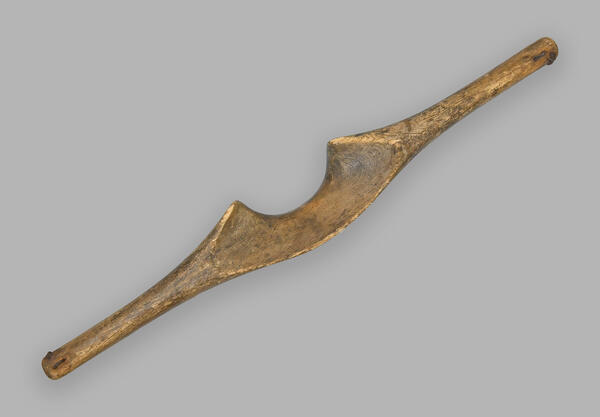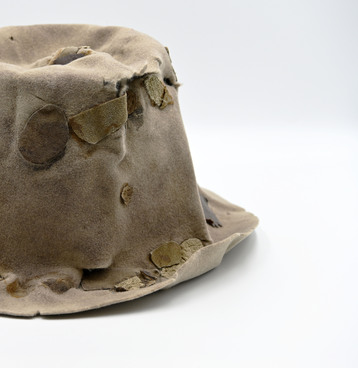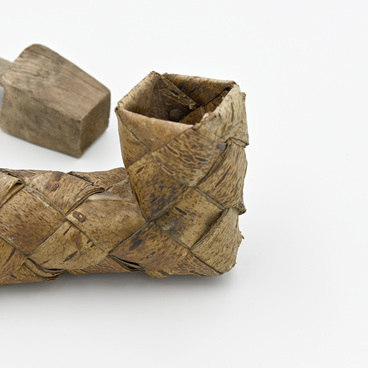The Polyarny Museum of History and Local Lore presents a yoke. It was carved from a wide board in the village of Teriberka of the Murmansk Governorate in the early 20th century.
This type of yoke is often called a Pomory yoke, because they were used by Pomory families — the main inhabitants of the Terek and Kola territories, fishermen living along the shores of the White Sea and the Barents Sea. It has an unusual appearance and not every visitor can immediately guess what it is. Such a design was more appropriate for going down a slope to a lake, stream or spring for water, and then climb back up. The Pomory yoke is shorter and provides better balance. Additionally, the special curve of the board makes it easy to position on the shoulders.
The yoke is made from a smooth board, narrow at the ends with a notch for the neck in the middle. Hooks for hanging buckets were fixed with rope, metal chains or thick wire on opposite sides of the yoke. Unlike the arched yoke with the buckets placed in front and at the back of the carrier, the buckets on the Pomory yoke were placed to their right and left.
The first yokes were straight cylindrical sticks with small hooks at the ends. These, apparently, were the most ancient and not very comfortable yokes. They can still be found in some areas to this day, however, they mostly serve as temporary homemade replacements for high-quality yokes made by professional craftsmen. Traditional arched yokes are convenient for carrying water on relatively flat land. In hilly terrain, such devices needed to be of a different shape.
The wood for making yokes needs to be light, durable and flexible, as well as solid and resistant to cracking. Birch was most often chosen as a material yokes, less often pine or spruce. Trees required for this task had to be 5–7 cm thick and 190–210 cm long. It was expected that such yokes would serve their owner 50 years or, oftentimes, even longer.
In villages and rural areas,
yokes were actively used until the 1980s. Carrying water on a yoke was mainly a
woman’s job.




